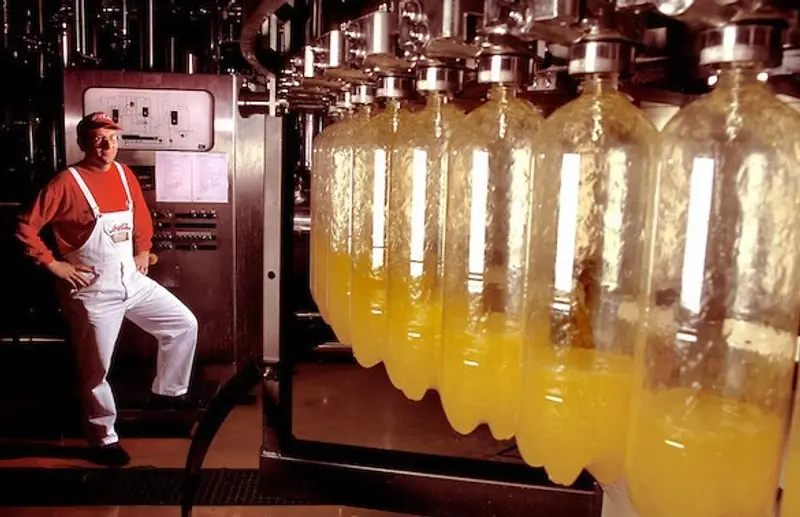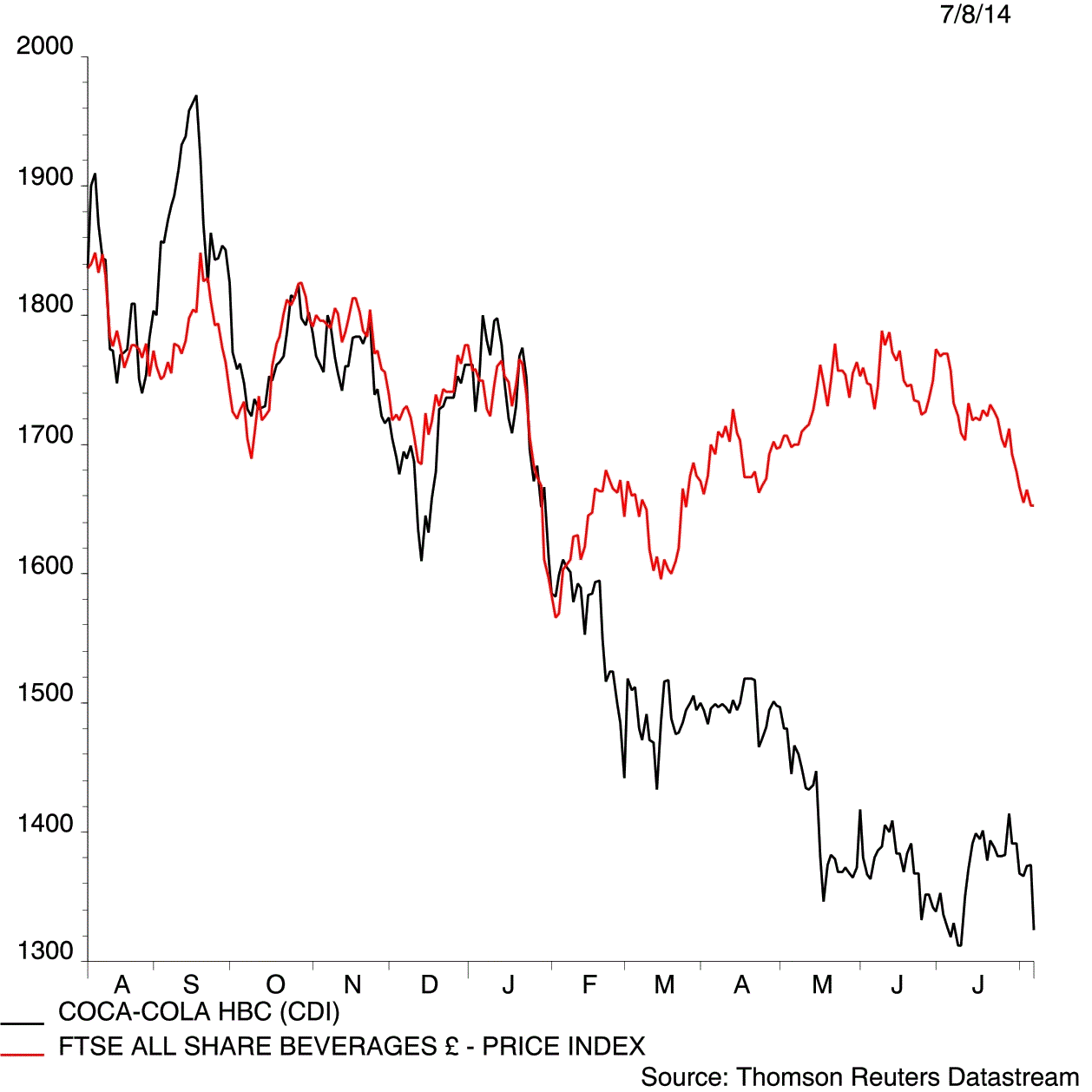
Soft drinks colossus Coca-Cola Hellenic Bottling Company (CCH) loses further fizz, falling 3.9% to £13.21 on lacklustre half-year figures and a cautious outlook statement. Interim profits are in negative territory at Coca-Cola's (KO:NYSE) European bottler amid depressed consumer sentiment and foreign exchange headwinds.
Switzerland-headquartered Coca-Cola HBC is one of the FTSE 100's least well-known businesses, having moved its primary listing from Athens to London in April 2013. Yet it is a beverages behemoth operating across 28 countries with a population of 585 million. Major shareholder Coca-Cola licenses the company to produce and distribute Coca-Cola, Fanta and Sprite, while Coca-Cola HBC also owns water and juice brands Amita, Deep RiverRock and Fruice. This enviable branded product range confers pricing power on the business and provides a stable source of cashflow and dividends.
Trouble is, Coca-Cola HBC sells into territories in the news for all the wrong reasons. These include troubled emerging markets Russia, its biggest market by volume, and Ukraine, volatile Nigeria, flood-stricken Serbia and Bosnia & Herzegovina, not to mention Greece, where unemployment stands at 26%. Little wonder then that the £5 billion cap's first-half results make pretty grim reading, with key takeaways including a 6% sales decline to €3.18 billion for the six months to 27 June, sending operating profits 23% south to €164.1 million.
Yet the statement does contain the odd bit of sparkle. At constant currency, sales revenue per case actually grew in the half, driven by sales and pricing initiatives. CEO Dimitris Lois also says the pace of volume decline moderated in Q2, driven by Nigeria's return to growth and a pick-up in established and developing markets. Input cost pressures also abated, enabling the cash-generative group to eke out second quarter margin gains in tandem with lower warehousing, distribution and marketing costs.
'For the full year,' says Lois, 'we expect the positive trends in currency-neutral net sales revenue per case, input and operating costs, combined with less foreign exchange pressure than previously anticipated, to offset the continuing challenging volume environment in our markets.' However the market is more fixated on the comment that 'we now expect the volume decline trend we have seen in the first half to persist in the remainder of the year.' Shares highlighted the risks facing Coca-Cola HBC in February.





